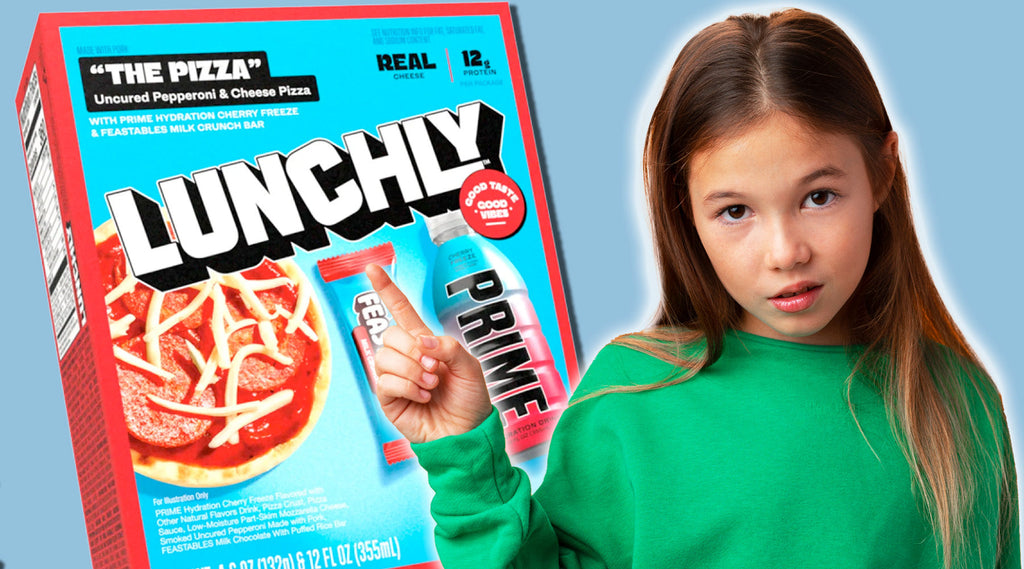
Navigating Influencer Marketing on Kids

Influencer Marketing Impact On Kids
Millennials witnessed the evolution of internet influence firsthand! From the early days of MySpace bulletins to today's sophisticated influencer marketing campaigns. As parents, we face raising children in an era where social media influencers wield unprecedented power over purchasing decisions.Our experience as the first generation to grow up with social media gives us a distinctive perspective on this modern parenting challenge. We'll examine how influencer giants like Mr.Beast impact kids’ consumer interest, the predatory marketing tactics on kids, and how we can guide our kids to be more mindful of these marketing tactics.

The Shifting Landscape: Our Influencer Experience vs. Our Kids'
For us millennials, early internet influence was relatively simple. We had our favorite YouTubers or bloggers recommending things they tried out from organic experiences. The content had a strong authenticity to it with the low-budget DIY aspect that many of us related to. Sponsored marketing through influencers was a rare practice at that time. Additionally, our exposure was limited to when we could access a computer.
In contrast, our kids immerse themselves in a digital world of constant and sophisticated influence. Every swipe reveals another strategically crafted sponsored ad seamlessly integrated into videos from their favorite influencers. These are all professionally produced and refined with significant budgets compared to the DIY content we grew up with. The line between entertainment and advertisement has become increasingly blurred.

(KSI, MrBeast, & Logan Paul via MrBeast's Instagram)
Understanding Modern Influencer Marketing and the Impact on Children
Modern influencer marketing targets our children with unprecedented precision. Take influencer powerhouses like MrBeast, celebrated for his generous charity stunts, family-friendly content, and relatability. He has proven his impact with over 325 million subscribers on YouTube alone. With that fame comes scrutiny as an influencer to a massive kid audience.
One of the recent controversies surrounding MrBeast is his Lunchly release with fellow internet stars Logan Paul and KSI. The trio promotes the product as a healthier alternative to Lunchables, but nutrition specialists suggest otherwise! Despite the fancy marketing claims and trusted faces behind it, research shows Lunchly is not much different from the ultra-processed food kits we grew up with. Sound familiar? It is similar to our youth when we begged our parents for Lunchables because our favorite TV channels constantly played commercials that depicted them as attractive and healthy food options to bring to school.
The modern discussion of ultra-processed foods is a topic of its own. However, it is a result of the lack of transparency with marketing tactics that affected us parents with the snacks advertised to us in our youth, now presenting harmful effects on health with recent studies. Similar predatory marketing tactics that influenced us in our youth are also done on our kids on a larger scale. We only had TV commercials, but social media and influencers have amplified advertising exposure to the youth. This case perfectly illustrates how influencer marketing evolved where a beloved content creator's massive reach can instantly create a desire for products among millions of young viewers, regardless of the true benefits.
The key differences in how influencer marketing affects our children include:
- Constant exposure through multiple platforms
- Parasocial relationships with influencers they trust
- integrated advertising that's harder to identify
- Peer pressure amplified through social sharing
- Instant purchase capabilities through connected devices
The Millennial Parent's Dilemma
We millennial parents have a unique position because we understand both sides of this equation. We remember the excitement of discovering new products through our favorite online personalities, but we also recognize the manipulative potential of influencer marketing on the youth. This perspective allows us to approach the situation with empathy and wisdom. It's good to note that a DKC report found that 95% of Gen-Alpha parents they surveyed admit their buying decisions are influenced by their kids half the time. This indirectly demonstrates how an influencer's impact on our kids also impacts us as parents.

Managing Influencer Driven Purchase Requests
Influencers are our kids' modern-day superheroes! Unlike our parents who might have brushed off internet culture with an eye roll, we get it. We grew up watching YouTube stars rise to fame and learned to spot those paid partnership tags. Now it's our turn to pass on that social media street smarts to our kids! We can discuss their favorite creators and help them understand when they're being sold something. Think of it as teaching them the digital smarts we wish we had when we first jumped into social media, but this time, they have us as their guide! Whenever our kids want a product because their favorite influencer promoted it, we can use that as a learning opportunity.Help Critical Thinking Skills:
- Ask them why they want the product.
- Research alternatives together.
- Discuss the difference between authentic recommendations and paid promotions.
Setting Reasonable Boundaries:
- Create a "consideration period" before making influencer promoted purchases.
- Teach the value of working for desired items through work ethic (chores, good grades, and saving money) over instant gratification.
Building Media Literacy for the Future
As millennials who grew up alongside social media, we can guide our children through this landscape. We can teach them to be informed consumers while acknowledging the reality of influencer culture. The goal isn't to shield them entirely from influencer marketing that's neither practical nor beneficial. Instead, we should focus on helping them develop critical thinking skills, awareness of target marketing tactics, and the ability to make informed decisions.
Our role as millennial parents isn't to completely restrict our children's exposure to influencer marketing, it's to help them navigate it wisely. We can use our firsthand experience with the evolution of social media to guide them toward becoming thoughtful consumers in a digital age. Remember, we're the first generation of parents who understand both sides. Let's use that knowledge to raise children who can enjoy content while maintaining a healthy perspective on influencer marketing and consumerism.



















